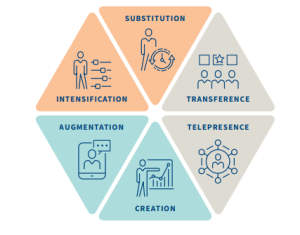Our next HR trend is happening right before our eyes – but few have noticed. In 2023, most organizations will start managing workers… with robots.

According to research firm IDC, 80% of the 2,000 companies worldwide will use algorithmic managers to hire, fire and train employees by 2024. It is already taking place in the gig economy. In addition, 40% of HR functions in international organizations have incorporated AI applications, which help increase the candidate pool, enable faster hiring, and improve engagement and retention.
This brings additional challenges related to fairness, communication and inclusion. For example, algorithmic managers have randomly determined which contractors will lose their jobs and fired people for reasons beyond their control.
HR needs to take ownership of algorithmic management, ensuring a fair, transparent and efficient process. There is a great opportunity that HR can exploit: creating systemic equity in the literal and figurative sense of the word. This means preventing existing biases embedded in historical HR data from being part of the algorithm.
Algorithmic managers will be able to process large amounts of data, communicate clearly and help both HR and managers make better-informed decisions. Moreover, they can add a level of transparency and procedural justice that is difficult for humans to provide.
These algorithms will be able to complement the manager and act as a sounding board. They will have access to much more information than managers at the moment, providing input for critical decisions.
HR practitioners will be instrumental in ensuring that HR technology complements diversity and inclusion in the future.

 Follow
Follow